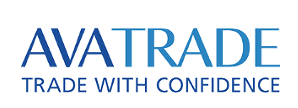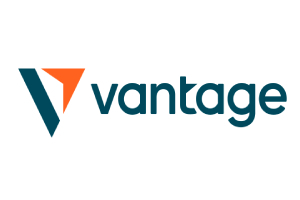Ethereum’s scaling journey has sparked a heated debate in the crypto world: Are Layer 2 solutions (L2s) truly part of Ethereum, or are they separate entities?
This question isn’t just academic—it cuts to the heart of Ethereum’s future and its ability to grow without losing its core identity.
The Symbiotic Relationship Between L2 and Ethereum
At first glance, L2s and Ethereum seem inseparable. L2s were born from Ethereum’s scaling needs and remain deeply linked to the mainnet. They use ETH as their primary currency, rely on Ethereum’s robust security model, and use Ethereum for storing and settling critical data.
This tight integration suggests that L2s are extensions of Ethereum, much like a startup leveraging its parent company’s resources. They expand Ethereum’s capabilities, attracting more users and developers to the ecosystem.
However, some argue that L2s are distinct from the Ether network. They operate on their own blockchains, often have their own tokens and governance structures, and could potentially break away from the Ether network.
This view sees L2s as independent entities that happen to be closely aligned with Ethereum—for now.
A more dramatic perspective suggests that L2s might be inadvertently bleeding the Ether network of its users and resources. This “vampire attack” theory, as described by Bankless, posits that as L2s grow, they might eventually spin up their own validator sets, becoming competing Layer 1 chains.
L2s are a vampire attack against Ethereum
They are taking away ETH users; by turning them into Arbitrum & Optimism users instead!
Eventually, L2s will spin up their own validator sets, effectively becoming competing L1s
As that way, they can keep all of the fees for themselves
— Justin Bons (@Justin_Bons) March 20, 2024
However, this fear may be overblown. Creating a new L1 from scratch is a massive undertaking, requiring significant resources and facing the same scalability challenges that prompted the creation of L2s in the first place.
While the proliferation of L2s showcases the success of Ethereum’s rollup-centric roadmap, it also presents a new challenge: fragmentation. With numerous L2s vying for attention, the Ethereum ecosystem risks becoming a patchwork of isolated networks rather than a cohesive whole.
To counter this, the community needs to focus on interoperability, standardization, and user experience. Initiatives like Superchain, AggLayer, and Orbit Chains are steps in this direction, aiming to create a more unified network of chains.
Despite the debate, the economic reality ties L2s closely to the Ether network. Major L2s like Arbitrum, Optimism, and Base are dominated by ETH-related assets.
L2s drive demand for ETH, enhancing its value proposition. They also enable new types of applications, expanding the overall Ethereum ecosystem. This economic alignment suggests that the success of L2s and Ethereum is deeply intertwined.
Beyond the Binary
The “Are L2s Ethereum?” question may be too simplistic. Instead, we should recognize the nuanced relationship between Ethereum and its L2 ecosystem.
Both aim to scale blockchain technology and drive adoption. Ethereum provides security and stability, while L2s offer speed and lower costs. This dynamic will likely continue to evolve as the technology matures.
Looking Ahead
As Ethereum and its L2 ecosystem evolve, several trends are likely to emerge. We can expect increased integration between Ethereum and L2s, possibly blurring the lines between them. L2s may increasingly focus on specific use cases or industries. The focus will shift towards creating seamless user experiences across the entire ecosystem.
Rather than viewing L2s as either part of or separate from Ethereum, we should embrace the complexity of their relationship. The future of Ethereum likely depends on a thriving L2 ecosystem, just as the success of L2s is tied to the strength of Ethereum.
The key lies in fostering collaboration, improving interoperability, and maintaining a shared vision of a scalable, decentralized future. By working together, Ethereum and its L2s can create a more robust, efficient, and user-friendly blockchain ecosystem—one that’s greater than the sum of its parts.
As the debate continues, one thing is clear: the relationship between Ethereum and L2s will play a crucial role in shaping the future of blockchain technology. It’s a symbiosis that, if nurtured correctly, could drive the next wave of crypto adoption and innovation.
In the end, whether L2s are considered “Ethereum” or not may matter less than how they function together. The real measure of success will be in creating a seamless, scalable, and user-friendly ecosystem that can support the next generation of decentralized applications and financial systems.
As the lines between L1 and L2 continue to blur, what emerges may be a new understanding of what “Ethereum” really means—not just a single blockchain, but a rich, interconnected ecosystem of aligned technologies and communities.
Make money without lifting your fingers: Start using a world-class auto trading solution
- Broker
- Min Deposit
- Score
- Visit Broker
- Award-winning Cryptocurrency trading platform
- $100 minimum deposit,
- FCA & Cysec regulated
- 20% welcome bonus of upto $10,000
- Minimum deposit $100
- Verify your account before the bonus is credited
- Fund Moneta Markets account with a minimum of $250
- Opt in using the form to claim your 50% deposit bonus
Learn to Trade
Never Miss A Trade Again

Signal Notification
Real-time signal notifications whenever a signal is opened, closes or Updated

Get Alerts
Immediate alerts to your email and mobile phone.

Entry Price Levels
Entry price level for every signal Just choose one of our Top Brokers in the list above to get all this free.



